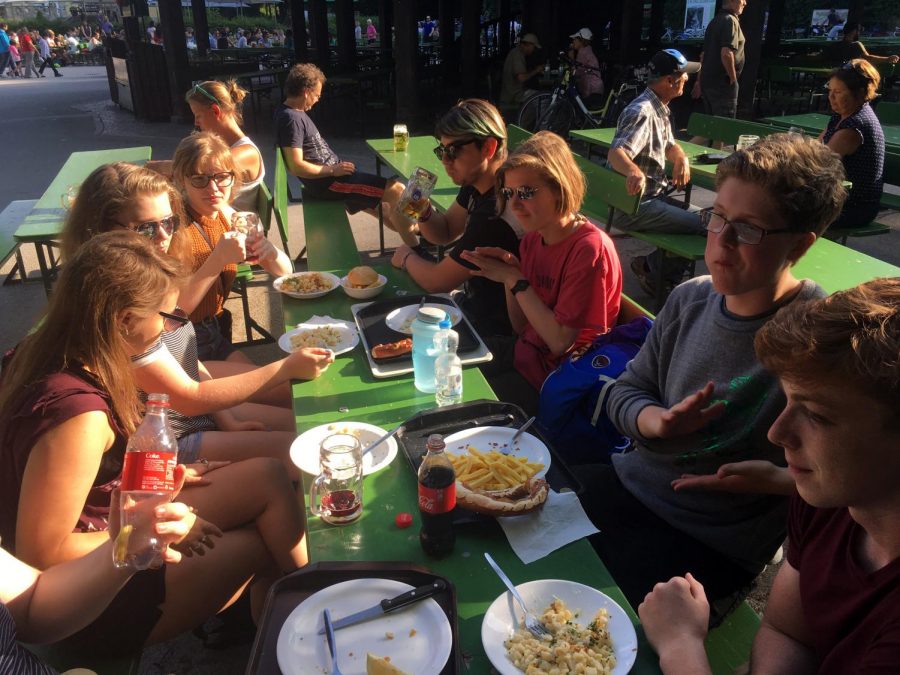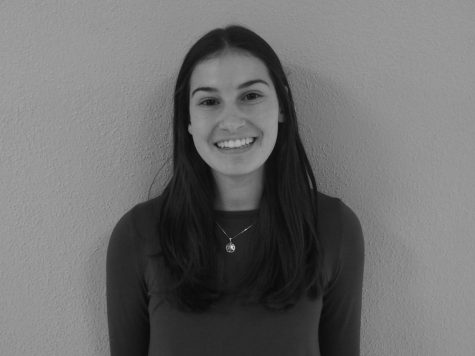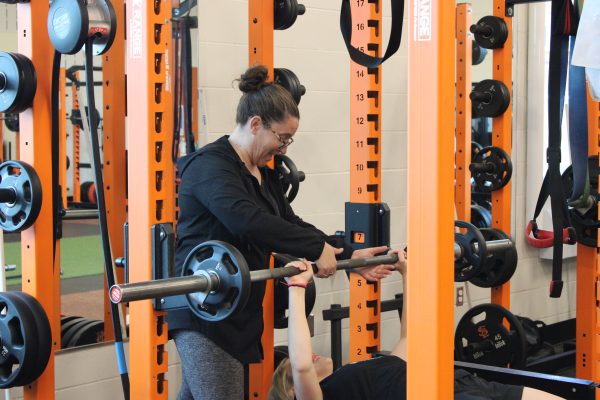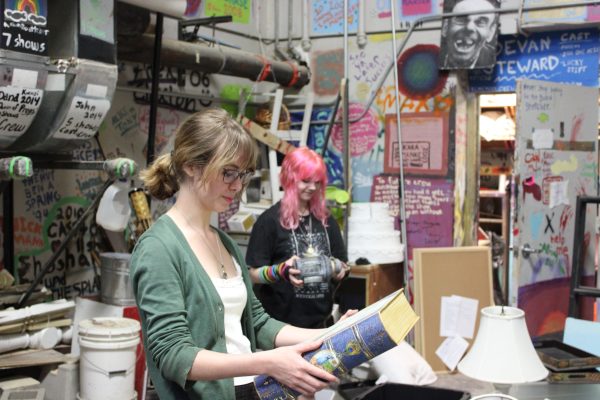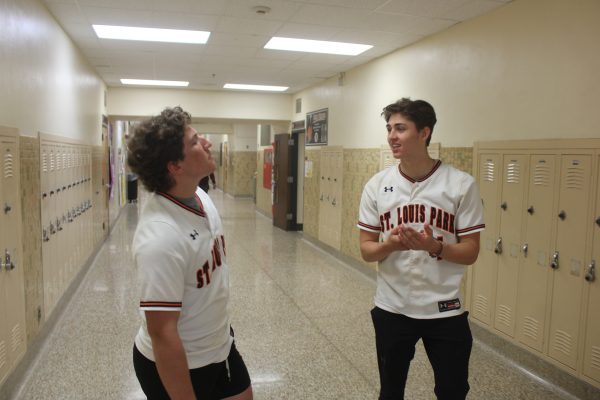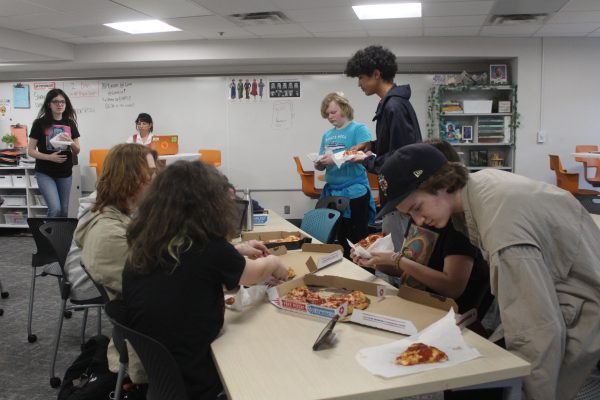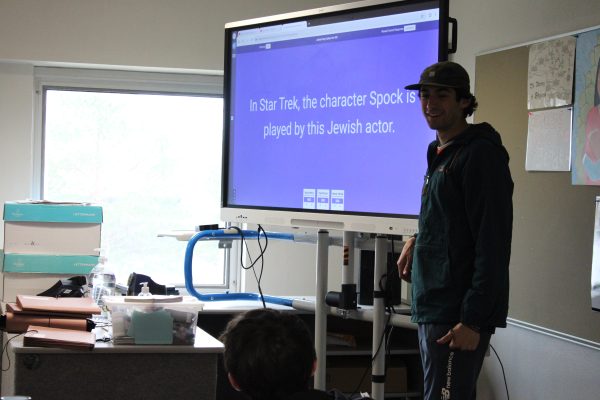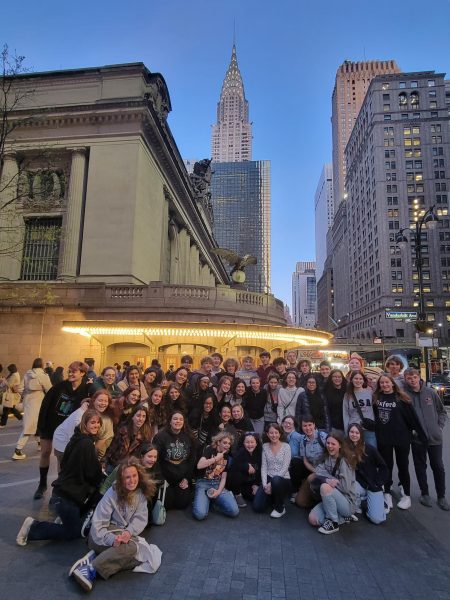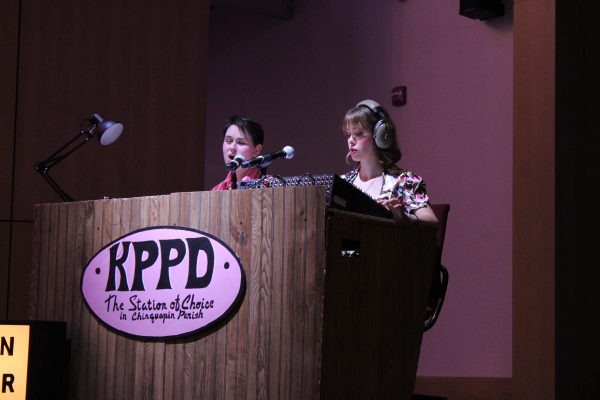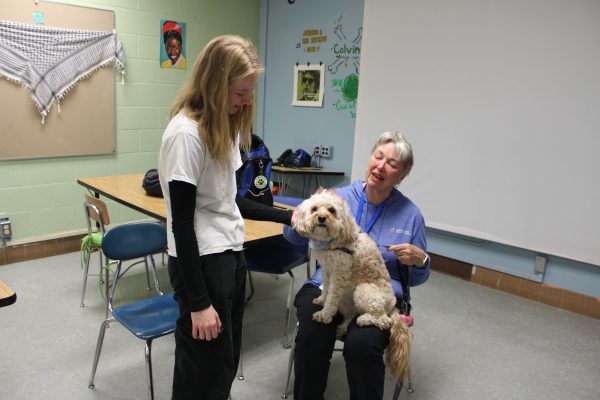German exchange students to come in February
Visit offers insight into cultural differences
Park Students eat lunch at a famous Biergarten after a historical bike ride around Munich. The students lived with host families in the German town of Bensheim and their host siblings will be visiting Park in February. Photo used with permission from Shari Fox.
October 25, 2017
Thinking about the upcoming February visit from German host families, senior German student Thomas Bryant said he feels excited to see the Germans he met over the summer.
Bryant said he is eager to show the German students his life as well as American life in general.
“I’m super excited (for the German students to come),” Bryant said. “I want to show them our culture and I like my host sisters.”According to German language teacher Shari Fox, Park has had a partner school in Germany since 2012 with whom they visit every other year.
“We have a partner school in a city about the same size as St. Louis Park named Benzheim near Frankfurt,” Fox said. “What we do is we trade off every other year, so this past summer I brought 16 kids to Germany and they stayed with families of students from their school who are now coming here in 2018 in February to see what school and life is like here for teenagers.”
Fox said she usually takes around 15 students with her to Germany each time. She said she looked for high class attendance and good language skills when selecting students for the trip.
“This is the kind of trip where when we get there, I drop you off and you’re with your family,” Fox said. “When we go do things together, you have to figure out how to navigate the public transportation and stuff, so they have to be able to speak a lot because they’re on their own a lot and there’s nobody to help them.”
Bryant said his time in Germany was great because the trip allowed him to experience a different way of life than that in the United States.
“I loved Germany, it was amazing to get to experience a different culture and see a place that’s just very different. (America doesn’t) have any castles, they have castles everywhere, it’s awesome,” Bryant said.
According to Fox, the trip costs around $3,700 to spend three weeks in Germany. She said she does all of the planning, which helps keep the cost down, but most of the expense is from the airplane tickets.

“(The next time students will be going to Germany is in) 2019, otherwise it’s too much to handle,” Fox said. “I’m the only person that organizes everything, so I would go crazy if I was organizing trips and hosting people in the same year.”
Fox said she organizes all the activities for when the German students come to visit Minnesota.
“When (the students) come (to America), there’s two German teachers coming over here with the group,” Fox said. “I plan field trips for them. I organize a schedule so that they’re shadowing somebody during the school day when they are here. I plan events for them sometimes in the evenings, not every single evening, (because) they want to have time with their family and see what actual life is like.”
Bryant said on the way to Minnesota, the Germans stop in New York for a week and experience life there as well as life in Minnesota.
“We’re going to show them the (Mall of America) and places in Minnesota,” Bryant said. “They’re going to New York for a week before they come to us, so they’ll have seen some cool American stuff before us.”
The most rewarding part of the trip, Fox said, is watching the students compare and contrast their different cultures.
“I think that’s the most interesting part of the exchange is how the kids compare things and see ‘they do this because they think this way’ and it’s not just like ‘oh in Germany they eat sausage,’” Fox said. “It’s more like ‘they see it like this, so they do this and we see it like that and we do that,’ so it becomes more like an actual cultural exchange rather than a tourist trip.”



